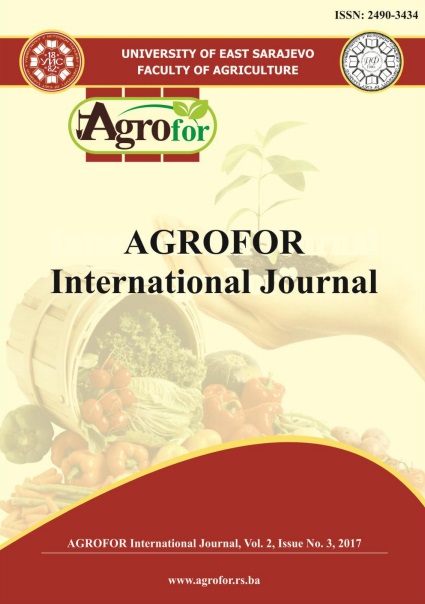APPLICATION OF AUGMENTED DESIGNS FOR FIELD EVALUATION OF BREAD WHEAT DOUBLED HAPLOID LINES: A PRELIMINARY REPORT
DOI:
https://doi.org/10.7251/AGRENG1703071DAbstract
Doubled-haploid is an effective method to produce 100% homozygous lines in a
single generation accelerating the release of new varieties and reducing the
corresponding expenses. However, the existing problem in cases where the
adequate quantity of seeds is limited is the inability to evaluate new germplasm in
replicated experiments. In his attempt to confront this problem, Petersen proposed
in 1985 the evaluation of new germplasm to be based on its division in blocks and
selection to be performed regarding the yield of the randomly repeated control in
each block. The aim of the present study was to use the aforementioned method to
evaluate preliminary 37 doubled-haploid lines (DHL). The parental varieties of the
DHLs,Greek cultivars “Acheloos” and “Vergina”, were used as controls. For the
purpose of the study, 35 main spikes, one form each DHL and control, were used.
The length of the spikes was measured, the number of spikelets was counted, and
the 1000 kernel weight and total yield were recorded. The data analysis revealed
that only one line exceeded the mean number of spikelets of the controls, one
exceeded the mean yield of the controls and two exceeded the mean 1000 kernel
weight of the controls (one was even better than the best control). The reported
results indicate the presence of valuable genetic variability among the DHL after
crossing cultivars “Acheloos” x “Vergina”. Further research is needed, after DHLs
multiplication, using more plants and locations to draw more reliable conclusions.

